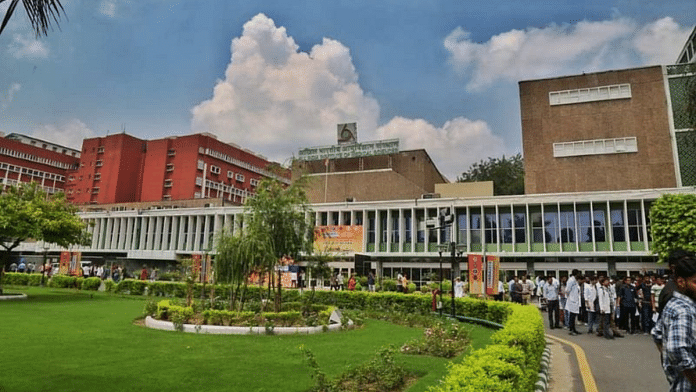New Delhi: Starting from the 2024-25 academic session, all medical colleges in the country, both private and public, will mandatorily be rated and ranked. The move follows a Memorandum of Understanding (MoU) signed by the National Medical Commission (NMC) with the Quality Council of India (QCI) to rate medical institutions.
The MoU between the NMC, the medical education regulator, and the QCI — an agency supported by the central government and industry bodies to improve quality in departments and industry — was signed last week.
According to the details shared by NMC, there are 654 medical colleges in India, and nearly half of them are privately run institutions.
Currently, only government medical colleges are required to participate in the National Institutional Ranking Framework (NIRF) by the Union education ministry, while the participation of private medical colleges is voluntary.
The NIRF ranking for 2023, released in June, ranked the All India Institute of Medical Sciences (AIIMS), New Delhi, as the best medical college in the country. Some private institutions such as Christian Medical College, Vellore, and Kasturba Medical College, Manipal, also made it to the top 10.
“However, as most of the private colleges are not rated and ranked in India, and only those institutions known for strong academic credentials volunteer for NIRF, it makes it difficult for students who wish to take admission for the MBBS or PG-medicine courses to take an informed decision about the prospects of medical institutions they are getting into,” NMC spokesperson Dr Yogender Malik told ThePrint.
He explained that the QCI rating will help create a ranking of all medical colleges, after rating them, which can be used as a major reference point by the MBBS and PG-medicine aspirants.
Malik, however, clarified that the NMC will continue to conduct inspections of the medical colleges, based on which it recognises medical colleges and approves the number of MBBS seats every five years.
An independent medical education expert from Kerala welcomed the move to rank both private and public medical colleges. “NMC should have criteria for rating,” Dr Thomas Chacko told ThePrint.
Also Read: NMC bars 38 medical colleges from admitting MBBS students this year over ‘administrative lapses’
‘Specific criteria’
According to the NMC officials, QCI has been tasked with developing criteria to rate medical colleges based on the parameters that are specific to medical education.
“For example, the NIRF ranking also considers the placement of students after they finish their degrees, which should not apply to medical colleges, as MBBS students do not have campus placement,” an official from the NMC’s Medical Assessment and Ratings Board told ThePrint.
The QCI, therefore, will come up with parameters more suitable to the sector, the official added.
While Chacko welcomed the move, he pointed out that the scheme should be similar to the National Assessment and Accreditation Council (NAAC) under the University Grants Commission.
“The NAAC has a rating scheme that private universities voluntarily apply for as it is helpful for them in attracting prospective students,” Chacko said.
He, however, also noted that if the NMC gets recognised by the World Medical Education Federation (WMFE), the QCI rating may not have much value.
WMFE is an international organisation that works to improve the quality of medical training, and it operates in partnership with the World Health Organisation and the World Medical Association.
“WMFE recognition programme requires NMC to get itself recognised against set standards, and this ensures quality and quality improvement in the training imparted to medical students,” said Chacko, who is also a member of the executive committee of the South East Asia Regional Association for Medical Education — a regional grouping of WMFE.
Simply put, what Chacko was trying to explain is that once recognised by WMFE, the quality of medical colleges will be ensured and the QCI rating will only be a duplication of efforts.
NMC applied for recognition by the WMFE last year, failing which Indian medical graduates will not be eligible to appear for the United States Medical Licentiate Examination (USMLE) for postgraduate training.
Starting 2024, individuals applying for the Education Commission for Foreign Medical Graduates (ECFMG) certification must be a student or graduate of a medical school that is accredited by a regulatory agency duly recognised by the WMFE.
Clearing air about the WFME recognition and rating by QCI, Malik said, that the two will go on parallelly. He also highlighted that the rating of medical colleges by an Indian agency was a statutory requirement under the NMC Act, 2019.
(Edited by Richa Mishra)
Also Read: NMC approves 50 new medical colleges in 15 states with over 8,000 MBBS seats



